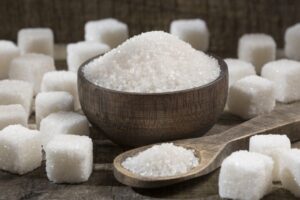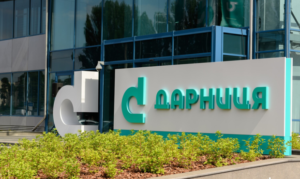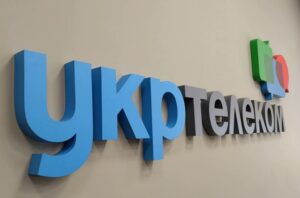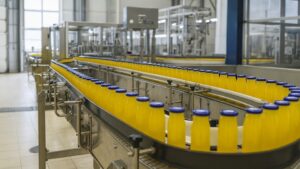
Turkish shoe retailer FLO is reducing its presence in the Ukrainian market: as of October 2025, it has only one store left in Ukraine — in the Fontan Sky shopping center (Odessa), whereas the company had previously planned to open up to 50 retail outlets.
According to publications, the closure of the company’s stores was influenced by extremely low sales: for example, the FLO hall in the Nikolsky shopping center in Kharkiv had an area of about 1,200 m², but its turnover was 4-5 times lower than expected.
According to data from the state register, in January-June 2025, the Ukrainian division’s revenue amounted to 53.3 million hryvnia, a decrease of 39.3% compared to the same period last year; the company’s loss during this period amounted to about 43 million hryvnia.
FLO is a Turkish footwear chain founded in the 1960s, with more than 850 stores in over 30 countries. It is one of the leading footwear retailers in the Middle East, African, and Eastern European markets. In 2020, FLO entered the Ukrainian market, opening its first stores in Lviv and Kyiv.

Ukraine may export an additional 46,000 tons of sugar to the EU as early as 2025, according to a statement by the National Association of Sugar Producers of Ukraine “Ukrtsukor” on its Telegram channel.
The industry association recalled that on October 29, 2025, an updated trade agreement between Ukraine and the European Union came into force, which provides for a 400% increase in the tariff quota for white sugar to 100,000 tons. As part of the agreements reached, the quota for the current year has also been revised, which will allow Ukrainian sugar producers to export an additional 46,625.8 tons of white sugar to the EU by the end of 2025.
According to Cabinet of Ministers Resolution No. 1368 of October 29, 2025, this volume will be distributed among exporters in proportion to the volume of exports of the specified products to the EU during January-May 2025.
Ukrtsukor specified that in October 2025, Ukraine exported 44.4 thousand tons of sugar worth over $20 million, of which only 2% was supplied to EU markets. Lebanon was the leader in terms of export volume, receiving 48% of all sugar. Syria and North Macedonia were also among the top three importers of Ukrainian sugar in October.

The net loss of PJSC Pharmaceutical Company Darnitsa (Kyiv) in January-June 2025 amounted to UAH 479.473 million, while in the same period of 2024, the company received UAH 6.528 million in net profit.
According to the company’s disclosure to the National Securities and Stock Market Commission, the net loss from sales in the first half of 2025 amounted to UAH 380.233 million, while in the same period of 2024, the profit from sales amounted to UAH 119.452 million.
As reported, Darnitsa’s net loss in January-March 2025 amounted to UAH 231.077 million, while in the same period of 2024, the company received UAH 19.484 million in net profit. Net sales revenue for the first quarter of 2025 decreased by 17.4% to almost UAH 1.018 billion.
In 2024, Darnitsa registered 10 drugs outside Ukraine and entered six new markets, including EU countries, Bosnia and Herzegovina, Israel, New Zealand, and Malaysia. In total, Darnitsa’s drugs are represented in more than 20 countries around the world.
At the end of 2024, exports accounted for 3.5% of the company’s sales. At the end of 2023, exports accounted for 4%. Exports were made to 17 countries.
Darnitsa has been present on the market for over 90 years, is one of the top 10 pharmaceutical manufacturers in Ukraine, and produces 180 brands of medicines in 15 different forms. The strategic areas of portfolio development are cardiology, neurology, and pain management.
According to the Unified State Register of Legal Entities and Individual Entrepreneurs, the ultimate beneficiary of the company is Gleb Zagoriy.

In January-September of this year, PJSC Nikopol Ferroalloy Plant (NFP, Dnipropetrovsk region) increased its net loss by 86.1% compared to the same period last year, from UAH 1 billion 81.463 million to UAH 2 billion 12.843 million.
According to the NPF’s interim report, net income for this period decreased by 21.4% to UAH 5 billion 111.026 million from UAH 6 billion 500.004 million.
Undistributed profit at the end of September 2025 amounted to UAH 2 billion 281.398 million.
As reported, in 2024, NZF increased its net loss by 15.9% compared to 2023, to UAH 3 billion 35.966 million from UAH 2 billion 620.399 million. Net income for the past year decreased by 17.7% to UAH 7 billion 813.056 million from UAH 9 billion 493.059 million.
In addition, it was reported that the Pokrovsky Mining and Processing Plant (PGZK, formerly Ordzhonikidze Mining and Processing Plant) and the Marganetsky Mining and Processing Plant (MGZK, both in Dnipropetrovsk region), which are part of the Privat Group, stopped mining and processing raw manganese ore at the end of October-beginning of November 2023, while NZF and ZZF stopped smelting ferroalloys. In the summer of 2024, ferroalloy plants resumed production at a minimum level.
NZF is Ukraine’s largest producer of silicon and ferromanganese. The average monthly output of ferroalloys during stable operation of the enterprise is about 55-60 thousand tons.
According to NDU data for the first quarter of 2025, Sofalon Investments Limitad owns 15.503% of the shares of PrJSC, Rougella Properties Ltd. – 9.6904%, Dolemia Consulting Ltd. – 15.7056%, Sonerio Holdings Ltd. – 9.2158%, Manjalom Limited – 5.8824%, Treelon Investments Limited (all – Cyprus) – 15.1013%.
The authorized capital of PJSC NZF is UAH 418.915 million.
NZF is controlled by the EastOne group, created in the fall of 2007 as a result of the restructuring of the Interpipe group, as well as the Privat group (both based in Dnipro).

Ukrtelecom, Ukraine’s largest fixed-line operator, increased its revenue by 5.6% in January-September 2025 compared to the same period in 2024, to UAH 3.8 billion, and its EBITDA by 6.6%, to UAH 906 million.
According to the company’s press release on Friday, revenue from fiber-optic internet services grew by 11.3%, and the share of subscribers using fiber-optic internet reached 80%.
The operator added that in January-September 2025, more than 3.5 thousand km of fiber-optic lines were laid, and in total, since the beginning of the full-scale invasion, more than 20 thousand km of optics have been built, which has enabled 1.4 million households to connect to fiber-optic internet. In total, fiber-optic internet is currently available to over 3.3 million users.
Ukrtelecom specified that this year, over 90 medical and nearly 160 educational institutions were also connected to fiber-optic internet, increasing their total number to over 1,360 and about 1,860, respectively.
It is noted that the company’s commercial rental income for the third quarter of 2025 exceeded UAH 400 million, while last year this figure was UAH 325 million.
In the first nine months of 2025, Ukrtelecom paid UAH 1.175 billion in taxes and fees to the budget, which is more than 17% better than the same indicator last year.
As reported, in January-June 2025, Ukrtelecom received total revenue of almost UAH 2.47 billion, which is approximately 7.4% higher than in the same period of 2024, while EBITDA decreased by approximately 12.9% to over UAH 540 million.

The Antimonopoly Committee of Ukraine (AMCU) adopted four decisions recognizing the actions of juice producer TB Fruit Capital LLC as a violation of the Law “On Protection of Economic Competition,” the agency reported.
The AMCU noted that in July 2021, the company acquired 100% stakes in the authorized capital of Arsenal Invest Khmelnytsky LLC, Arsenal Investgroup Vinnytsia LLC, Arsenal Investgroup LLC, and Arsenal Investgroup Gorodok LLC without obtaining the necessary permission from the committee. Consequently, the AMCU initiated proceedings for violations related to the company’s implementation of the aforementioned concentrations without prior permission.
The agency reminded that a concentration requiring permission in accordance with Part 1 of Article 24 of the Law “On Protection of Economic Competition” is prohibited until permission is granted for its implementation. Until such permission is granted, the participants in the concentration are obliged to refrain from actions that may lead to a restriction of competition and the impossibility of restoring its initial state.
The AMCU recognized such actions of the company as violations of paragraph 12 of Article 50 of the Law “On Protection of Economic Competition” in the form of concentrations without obtaining the relevant permits from the committee, the presence of which is necessary, and as a result of considering four cases, fined it a total of UAH 39,103,231.
According to Opendatabot, TB Fruit Capital LLC is registered in the city of Gorodok, Lviv region. It specializes in the production of fruit and vegetable juices, baby food, and the processing and canning of fruits and vegetables. The beneficiary of the company is Taras Koliankovsky.